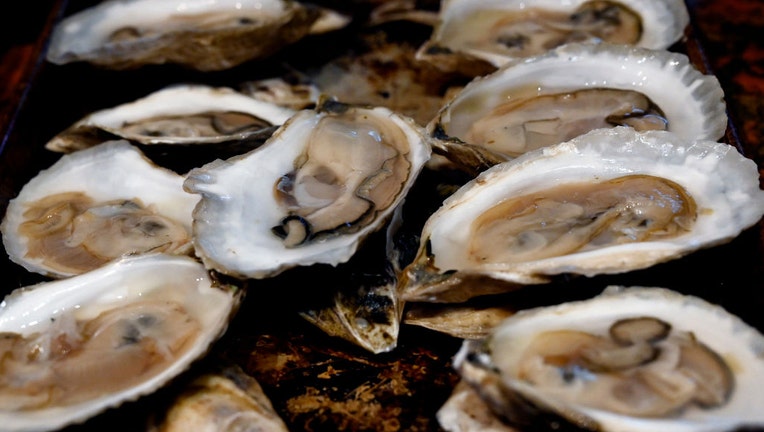FDA warns some oysters, clams could be contaminated with paralytic shellfish toxins

FILE-Oysters are displayed on a plate. (Shawn Patrick Ouellette/Portland Press Herald via Getty Images)
A warning was issued by the Food and Drug Administration (FDA) about some oysters and clams that may be contaminated with paralytic shellfish toxins.
These contaminated shellfish and clams were harvested from Netarts Bay and Tillamook Bay, Oregon, on or after May 28, and the shellfish species from Willapa Bay, Washington, were harvested from May 26 to May 30.
The FDA said the shellfish were distributed to restaurants and retailers in Arizona, California, Colorado, Hawaii, Nevada, New York, Oregon, and Washington and possibly distributed to other states.
RELATED: This food has ‘alarmingly high’ level of pesticides, report finds
FDA officials are urging restaurants and food retailers not to serve or sell these items and should throw them away. Consumers are also encouraged to avoid eating the products, which can cause "paralytic shellfish poisoning" (PSP).
According to the FDA, most people with PSP will develop symptoms within 30 minutes of eating contaminated seafood.
Symptoms of PSP include tingling of the lips, mouth, and tongue to respiratory paralysis and also numbness of arms and legs, "pins and needles" sensation, weakness, loss of muscle coordination, floating feeling, nausea, shortness of breath, dizziness, vomiting, and headache.
RELATED: Sunscreen recalled after mold discovered during testing
Shellfish contaminated with natural toxins from the water in which they live can cause illness, and many of the toxins are produced by algae.
On May 30, the Oregon Department of Agriculture informed the FDA of a recall of particular oysters and clams with "elevated PSP levels. The Washington Health Department contacted the FDA of a recall for all shellfish harvested from areas in Willapa Bay because of elevated PSP levels.
The FDA stated in its recall notice that it is waiting for more information on the distribution of the shellfish harvested. The agency adds it will continue to observe the investigation and offer help to state authorities, adding that when new information is available, the agency will update its safety alert.
Anyone with PSP symptoms should call their healthcare providers and report it to their local health departments.
This story was reported from Washington, D.C.

